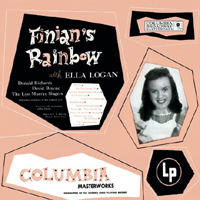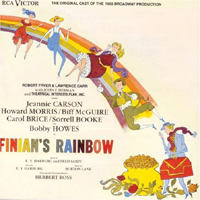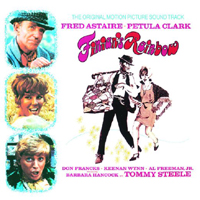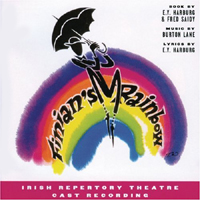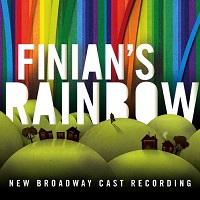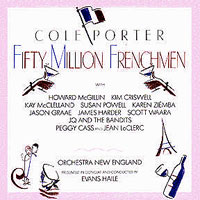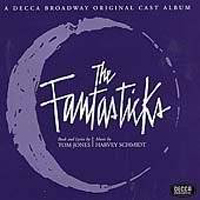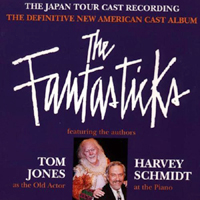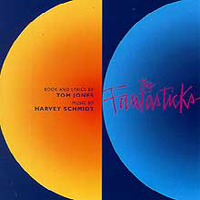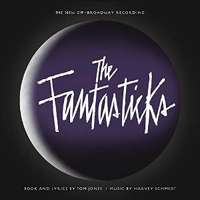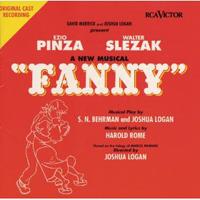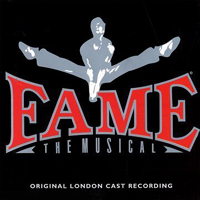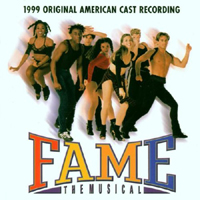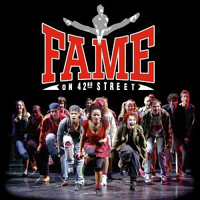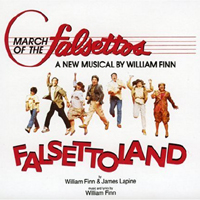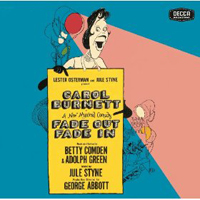 Original Broadway Cast, 1964 (RCA)
Original Broadway Cast, 1964 (RCA)  (5 / 5) One of the glories of the RCA cast album catalogue, this is a treasured memento of the original production of the Jerry Bock-Sheldon Harnick-Joseph Stein masterpiece Fiddler on the Roof, based on stories by Sholom Aleichem. It’s well documented that Zero Mostel, the show’s hugely talented star, became impossible as Fiddler settled into its long run, ad-libbing outrageously and pretty much abandoning the character of Tevye. (According to some reports, his antics were partly responsible for his being passed over for the film version of the musical.) So we can be thankful that “Z” was on his best behavior for the cast recording, made just after the show opened. His Tevye is a force of nature, a definitive portrayal of the role, and his rendition of “If I Were a Rich Man” will likely remain unsurpassed till the end of time. The rest of the company is marvelous: The late, great Maria Karnilova is sharp and funny as Golde, golden-voiced Julia Migenes delivers a heart-tugging performance of “Far From the Home I Love,” Austin Pendleton sings “Miracle of Miracles” like he really means it, and Bert Convy’s gorgeous baritenor is showcased in “Now I Have Everything.” It’s fun to have Beatrice Arthur on hand as Yente, and you can hear more of her on the CD/digital download issue of this album than on the LP and tape editions, because one of the numbers in which she’s featured, “The Rumor,” is included; it was previously unreleased, along with the “Bottle Dance,” which is also happily to be found here. The sound quality of the recording is superlative, and several bonus tracks are included. All but one of them feature lyricist Harnick, who performs “If I Were a Rich Man” and two cut songs from the show, “How Much Richer Could One Man Be?” and “When Messiah Comes.” He additionally shares stories of the original production. The remaining bonus item is an instrumental version of “If I Were a Rich Man” as played by the Moscow Virtuosi. — Michael Portantiere
(5 / 5) One of the glories of the RCA cast album catalogue, this is a treasured memento of the original production of the Jerry Bock-Sheldon Harnick-Joseph Stein masterpiece Fiddler on the Roof, based on stories by Sholom Aleichem. It’s well documented that Zero Mostel, the show’s hugely talented star, became impossible as Fiddler settled into its long run, ad-libbing outrageously and pretty much abandoning the character of Tevye. (According to some reports, his antics were partly responsible for his being passed over for the film version of the musical.) So we can be thankful that “Z” was on his best behavior for the cast recording, made just after the show opened. His Tevye is a force of nature, a definitive portrayal of the role, and his rendition of “If I Were a Rich Man” will likely remain unsurpassed till the end of time. The rest of the company is marvelous: The late, great Maria Karnilova is sharp and funny as Golde, golden-voiced Julia Migenes delivers a heart-tugging performance of “Far From the Home I Love,” Austin Pendleton sings “Miracle of Miracles” like he really means it, and Bert Convy’s gorgeous baritenor is showcased in “Now I Have Everything.” It’s fun to have Beatrice Arthur on hand as Yente, and you can hear more of her on the CD/digital download issue of this album than on the LP and tape editions, because one of the numbers in which she’s featured, “The Rumor,” is included; it was previously unreleased, along with the “Bottle Dance,” which is also happily to be found here. The sound quality of the recording is superlative, and several bonus tracks are included. All but one of them feature lyricist Harnick, who performs “If I Were a Rich Man” and two cut songs from the show, “How Much Richer Could One Man Be?” and “When Messiah Comes.” He additionally shares stories of the original production. The remaining bonus item is an instrumental version of “If I Were a Rich Man” as played by the Moscow Virtuosi. — Michael Portantiere
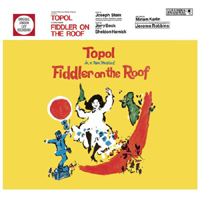 Original London Cast, 1967 (Columbia/Sony)
Original London Cast, 1967 (Columbia/Sony)  (3 / 5) This is an enjoyable recording if you don’t mind the British accents of most of the singers and the strange, hard-to-pin-down accent of Topol (full name: Chaim Topol) in the role of Tevye. Some listeners may actually prefer Topol’s performance here to the one he gives on the film soundtrack album (see review below), as it’s less mannered and has more theatrical energy. The other major soloists on the London cast album are Miriam Karlin (Golde), Linda Gardner (Hodel), Rosemary Nicols (Tzeitel), Jonathan Lynn (Motel), Sandor Elès (Perchik), and Paul Whitsun-Jones (Lazar Wolf). All of their vocal performances are fine but not distinctive enough to warrant special note, except to observe that Karlin is an extremely baritonal Golde. The Broadway orchestrations are used here, yet they sound a bit different than they do on the original Broadway cast album, because of the way the score is conducted (by Gareth Davies), recorded, and mixed. Note that here we have a complete recording of “Tradition,” rather than the edited version to be found on the original Broadway cast album, but both recordings feature the same rejiggered ending for “L’Chaim,” rather than what was actually seen and heard in the show. — M.P.
(3 / 5) This is an enjoyable recording if you don’t mind the British accents of most of the singers and the strange, hard-to-pin-down accent of Topol (full name: Chaim Topol) in the role of Tevye. Some listeners may actually prefer Topol’s performance here to the one he gives on the film soundtrack album (see review below), as it’s less mannered and has more theatrical energy. The other major soloists on the London cast album are Miriam Karlin (Golde), Linda Gardner (Hodel), Rosemary Nicols (Tzeitel), Jonathan Lynn (Motel), Sandor Elès (Perchik), and Paul Whitsun-Jones (Lazar Wolf). All of their vocal performances are fine but not distinctive enough to warrant special note, except to observe that Karlin is an extremely baritonal Golde. The Broadway orchestrations are used here, yet they sound a bit different than they do on the original Broadway cast album, because of the way the score is conducted (by Gareth Davies), recorded, and mixed. Note that here we have a complete recording of “Tradition,” rather than the edited version to be found on the original Broadway cast album, but both recordings feature the same rejiggered ending for “L’Chaim,” rather than what was actually seen and heard in the show. — M.P.
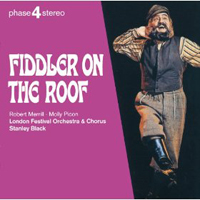 Studio Cast, 1968 (London)
Studio Cast, 1968 (London)  (2 / 5) Here is an odd but intermittently pleasurable recording made in “Phase 4 Stereo.” Aside from overload distortion in certain passages, the sound quality is terrific. Although the orchestrations seem to be the Don Walker originals with a few enhancements, the score sounds quite grand as recorded in a weighty, reverberant acoustic. Conductor Stanley Black sets some very slow tempi, but his pacing does bring out the melodic beauty of “Sunrise, Sunset,” “Sabbath Prayer,” and “Far From the Home I Love.” As Tevye, we have opera star Robert Merrill, who toured in the role and who comes across here as both a fine actor and a great singer. Playing opposite him as Golde is Molly Picon, a treasured artist of the Yiddish theater — but she was too old for the role when this recording was made, and is further hampered by Black’s slow pacing and by her having to switch back and forth between octaves to negotiate the range of Golde’s songs. Still, Picon has many engaging moments. Gary Cole sounds too operatic and too British in Motel’s “Miracle of Miracles,” but Mary Thomas sings Hodel’s “Far From the Home I Love” well, even if she indulges in an ill-advised high note at the end. Perchik’s song “Now I Have Everything” is nowhere to be found on this album; on the other hand, we get to hear Merrill perform one of the partly sung, partly spoken monologues Tevye delivers upon learning that his daughters are planning to marry against his wishes. The most controversial aspects of this recording are that (1) it features annoying, superfluous narration written by Jacob Kalich and spoken by Picon and Merrill; and (2) for some reason, the order of the first several songs in the score was changed. — M.P.
(2 / 5) Here is an odd but intermittently pleasurable recording made in “Phase 4 Stereo.” Aside from overload distortion in certain passages, the sound quality is terrific. Although the orchestrations seem to be the Don Walker originals with a few enhancements, the score sounds quite grand as recorded in a weighty, reverberant acoustic. Conductor Stanley Black sets some very slow tempi, but his pacing does bring out the melodic beauty of “Sunrise, Sunset,” “Sabbath Prayer,” and “Far From the Home I Love.” As Tevye, we have opera star Robert Merrill, who toured in the role and who comes across here as both a fine actor and a great singer. Playing opposite him as Golde is Molly Picon, a treasured artist of the Yiddish theater — but she was too old for the role when this recording was made, and is further hampered by Black’s slow pacing and by her having to switch back and forth between octaves to negotiate the range of Golde’s songs. Still, Picon has many engaging moments. Gary Cole sounds too operatic and too British in Motel’s “Miracle of Miracles,” but Mary Thomas sings Hodel’s “Far From the Home I Love” well, even if she indulges in an ill-advised high note at the end. Perchik’s song “Now I Have Everything” is nowhere to be found on this album; on the other hand, we get to hear Merrill perform one of the partly sung, partly spoken monologues Tevye delivers upon learning that his daughters are planning to marry against his wishes. The most controversial aspects of this recording are that (1) it features annoying, superfluous narration written by Jacob Kalich and spoken by Picon and Merrill; and (2) for some reason, the order of the first several songs in the score was changed. — M.P.
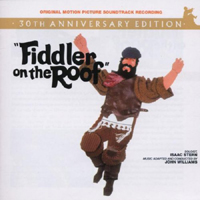 Film Soundtrack, 1971 (United Artists)
Film Soundtrack, 1971 (United Artists)  (3 / 5) While the film version of Fiddler on the Roof is a creditable adaptation of the show overall , the soundtrack recording doesn’t stand up all that well on its own. The music was adapted and conducted for the screen by John Williams, and the violin soloist is the great Isaac Stern, but many of the vocal numbers fall short as enjoyable listening experiences. Topol’s Tevye has lots of personality, but again, his odd accent is somewhat disconcerting, as on the original London cast recording. Also, he delivers his spoken lines in “Tradition,” “Tevye’s Dream,” and elsewhere v-e-r-y slowly. Norma Crane seems miscast as Golde, and Michele Marsh as Hodel goes overboard in trying to make “Far From the Home I Love” sound “natural” rather than musically expansive. More happily, when Rosalind Harris and Neva Small join Marsh in “Matchmaker, Matchmaker” it’s a delightful performance. The “Chava Ballet Sequence” is gorgeous, thanks in large measure to Stern’s achingly beautiful solo, and the highlight of the recording is Leonard Frey’s rendition of “Miracle of Miracles” — two minutes and four seconds of utter joy. The latest CD edition of this album includes some tracks that were not on the original two-LP set or on the first CD edition. One of them is “Any Day Now,” a song that was written for Perchik to sing in place of “Now I Have Everything” but didn’t make it into the movie. — M.P.
(3 / 5) While the film version of Fiddler on the Roof is a creditable adaptation of the show overall , the soundtrack recording doesn’t stand up all that well on its own. The music was adapted and conducted for the screen by John Williams, and the violin soloist is the great Isaac Stern, but many of the vocal numbers fall short as enjoyable listening experiences. Topol’s Tevye has lots of personality, but again, his odd accent is somewhat disconcerting, as on the original London cast recording. Also, he delivers his spoken lines in “Tradition,” “Tevye’s Dream,” and elsewhere v-e-r-y slowly. Norma Crane seems miscast as Golde, and Michele Marsh as Hodel goes overboard in trying to make “Far From the Home I Love” sound “natural” rather than musically expansive. More happily, when Rosalind Harris and Neva Small join Marsh in “Matchmaker, Matchmaker” it’s a delightful performance. The “Chava Ballet Sequence” is gorgeous, thanks in large measure to Stern’s achingly beautiful solo, and the highlight of the recording is Leonard Frey’s rendition of “Miracle of Miracles” — two minutes and four seconds of utter joy. The latest CD edition of this album includes some tracks that were not on the original two-LP set or on the first CD edition. One of them is “Any Day Now,” a song that was written for Perchik to sing in place of “Now I Have Everything” but didn’t make it into the movie. — M.P.
 Broadway Cast, 2004 (PS Classics) No stars; not recommended. This production was woefully misdirected by David Leveaux. We can be grateful that the cast album doesn’t preserve such bits of staging as Tevye’s daughters sponge-bathing themselves during “Matchmaker, Matchmaker,” Tzeitel and Motel dangling from the flies during “Tevye’s Dream,” and the minor character of Nahum the beggar taking over the spotlight in every big number. From a purely musical standpoint, the production wasn’t quite so deplorable, but that’s not to say there’s any compelling reason to purchase the recording. As Tevye, Alfred Molina has a bit more life here than he did onstage, but he’s still bland in a role that requires a tremendous amount of presence, energy, and humor. Sally Murphy, Laura Michelle Kelly, and Tricia Paoluccio as (respectively) Tzeitel, Hodel, and Chava are colorless. Randy Graff is very good as Golde, but it’s difficult to enjoy her performance in these surroundings. And although John Cariani does a fine job with Motel’s “Miracle of Miracles,” Robert Petkoff doesn’t have enough voice for Perchik’s “Now I Have Everything.” Larry Hochman’s rewrites of the original Don Walker orchestrations are completely unnecessary; the fillips he adds to “Tradition” are especially egregious. Conductor Kevin Stites distorts such great songs as “Matchmaker, Matchmaker” and “Far From the Home I Love” with weird internal shifts in tempo. For what it’s worth, the recording includes a fair amount of Joseph Stein’s wonderful dialogue. — M.P.
Broadway Cast, 2004 (PS Classics) No stars; not recommended. This production was woefully misdirected by David Leveaux. We can be grateful that the cast album doesn’t preserve such bits of staging as Tevye’s daughters sponge-bathing themselves during “Matchmaker, Matchmaker,” Tzeitel and Motel dangling from the flies during “Tevye’s Dream,” and the minor character of Nahum the beggar taking over the spotlight in every big number. From a purely musical standpoint, the production wasn’t quite so deplorable, but that’s not to say there’s any compelling reason to purchase the recording. As Tevye, Alfred Molina has a bit more life here than he did onstage, but he’s still bland in a role that requires a tremendous amount of presence, energy, and humor. Sally Murphy, Laura Michelle Kelly, and Tricia Paoluccio as (respectively) Tzeitel, Hodel, and Chava are colorless. Randy Graff is very good as Golde, but it’s difficult to enjoy her performance in these surroundings. And although John Cariani does a fine job with Motel’s “Miracle of Miracles,” Robert Petkoff doesn’t have enough voice for Perchik’s “Now I Have Everything.” Larry Hochman’s rewrites of the original Don Walker orchestrations are completely unnecessary; the fillips he adds to “Tradition” are especially egregious. Conductor Kevin Stites distorts such great songs as “Matchmaker, Matchmaker” and “Far From the Home I Love” with weird internal shifts in tempo. For what it’s worth, the recording includes a fair amount of Joseph Stein’s wonderful dialogue. — M.P.
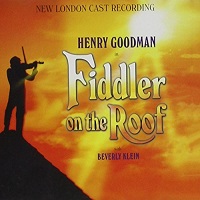 London Cast, 2007 (Musical Associates)
London Cast, 2007 (Musical Associates)  (4 / 5) Henry Goodman’s performance as Tevye is distinguished not only by his warm, witty, engaging personality and a strong singing voice but also by a very natural, authentic-sounding Yiddish/Russian accent. In sum, he’s one of the best Tevyes on records — and that’s saying something, considering the formidable competition. The other leads are also strong, particularly the American singing actress Alexandra Silber as a golden-voiced Hodel. (Her performance of “Far From the Home I Love,” with a moving assist from Goodman, is one of the recording’s highlights.) Damian Humbley as Perchik bucks the unfortunate recent trend of this role having been cast with performers who can’t sing very well; he gives “Now I Have Everything” its full worth, in a key slightly higher than the original. More good news is that, although Don Walker’s original orchestrations for 25 pieces have been cut down to 10 by Larry Blank, the resulting sound is full enough that it feels as if nothing major has been sacrificed. Jae Alexander conducts the entire performance in a traditional manner with great love and care, a necessary antidote to the idiosyncracies of Kevin Stites’ work on the 2004 Broadway revival cast album. This entry seems to have gotten somewhat lost in the shuffle among 21st-century recordings of Fiddler on the Roof, but it’s well worth seeking out. — M.P.
(4 / 5) Henry Goodman’s performance as Tevye is distinguished not only by his warm, witty, engaging personality and a strong singing voice but also by a very natural, authentic-sounding Yiddish/Russian accent. In sum, he’s one of the best Tevyes on records — and that’s saying something, considering the formidable competition. The other leads are also strong, particularly the American singing actress Alexandra Silber as a golden-voiced Hodel. (Her performance of “Far From the Home I Love,” with a moving assist from Goodman, is one of the recording’s highlights.) Damian Humbley as Perchik bucks the unfortunate recent trend of this role having been cast with performers who can’t sing very well; he gives “Now I Have Everything” its full worth, in a key slightly higher than the original. More good news is that, although Don Walker’s original orchestrations for 25 pieces have been cut down to 10 by Larry Blank, the resulting sound is full enough that it feels as if nothing major has been sacrificed. Jae Alexander conducts the entire performance in a traditional manner with great love and care, a necessary antidote to the idiosyncracies of Kevin Stites’ work on the 2004 Broadway revival cast album. This entry seems to have gotten somewhat lost in the shuffle among 21st-century recordings of Fiddler on the Roof, but it’s well worth seeking out. — M.P.
 Broadway Cast, 2016 (Broadway Records)
Broadway Cast, 2016 (Broadway Records)  (1 / 5) Here we have the cast album of yet another misdirected Broadway revival of Fiddler on the Roof — this one surprisingly botched by Bartlett Sher, whose previous productions of two other classic musicals, South Pacific and The King and I, were excellent. Sher’s ill-considered revamp of Fiddler included the addition of a pointless framing device, with Danny Burstein as a present-day Jew returning to the former site of Anatevka and then assuming the role of Tevye in what essentially became a show-length flashback; and a nonsensically dark misinterpretation of the formerly lighthearted “Matchmaker, Matchmaker” scene and song. Happily, neither of these major missteps come through on the recording. But several other infelicities do, such as the near-ruination through downward key transposition of “Sabbath Prayer” and “Sunrise, Sunset,” presumably done in order to keep these numbers within the narrow vocal range of Jessica Hecht as Golde. Other liabilities are the fussy new orchestrations by Ted Sperling, incorporating some passages borrowed from the film version of Fiddler, and the fact that Ben Rappaport as Perchik lacks the vocal chops for “Now I Have Everything.” (Given the deep pool of performing talent available on Broadway, one has to wonder why both David Leveaux in 2004 and Bartlett Sher in 2016 cast Perchiks who couldn’t properly sing the character’s one song.) Adam Kantor’s Motel is persuasive in “Miracle of Miracles,” but while Samantha Massell displays a lovely voice as Hodel, her rendition of “Far From the Home I Love” is marred by poor phrasing and jarringly modern pronunciation. Very much on the plus side, Burstein is a warm and vital Tevye despite all the mishegoss that surrounds him. He fully deserved the Tony Award nomination he received for carrying this production on his shoulders, and his recorded performance is the primary reason why the cast album has not been handed a 0-star rating here. [Note: Although the recording was made and released early in 2016, this Fiddler officially opened on December 20, 2015.] — M.P.
(1 / 5) Here we have the cast album of yet another misdirected Broadway revival of Fiddler on the Roof — this one surprisingly botched by Bartlett Sher, whose previous productions of two other classic musicals, South Pacific and The King and I, were excellent. Sher’s ill-considered revamp of Fiddler included the addition of a pointless framing device, with Danny Burstein as a present-day Jew returning to the former site of Anatevka and then assuming the role of Tevye in what essentially became a show-length flashback; and a nonsensically dark misinterpretation of the formerly lighthearted “Matchmaker, Matchmaker” scene and song. Happily, neither of these major missteps come through on the recording. But several other infelicities do, such as the near-ruination through downward key transposition of “Sabbath Prayer” and “Sunrise, Sunset,” presumably done in order to keep these numbers within the narrow vocal range of Jessica Hecht as Golde. Other liabilities are the fussy new orchestrations by Ted Sperling, incorporating some passages borrowed from the film version of Fiddler, and the fact that Ben Rappaport as Perchik lacks the vocal chops for “Now I Have Everything.” (Given the deep pool of performing talent available on Broadway, one has to wonder why both David Leveaux in 2004 and Bartlett Sher in 2016 cast Perchiks who couldn’t properly sing the character’s one song.) Adam Kantor’s Motel is persuasive in “Miracle of Miracles,” but while Samantha Massell displays a lovely voice as Hodel, her rendition of “Far From the Home I Love” is marred by poor phrasing and jarringly modern pronunciation. Very much on the plus side, Burstein is a warm and vital Tevye despite all the mishegoss that surrounds him. He fully deserved the Tony Award nomination he received for carrying this production on his shoulders, and his recorded performance is the primary reason why the cast album has not been handed a 0-star rating here. [Note: Although the recording was made and released early in 2016, this Fiddler officially opened on December 20, 2015.] — M.P.
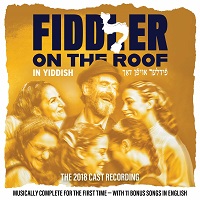 National Yiddish Theatre Folksbiene/Off-Broadway Cast, 2019 (Time/Life, 2CDs)
National Yiddish Theatre Folksbiene/Off-Broadway Cast, 2019 (Time/Life, 2CDs)  (5 / 5) This recording is an impressively well produced and comprehensive aural document of a gorgeous, extraordinary production of Fiddler on the Roof that was first presented by the National Yiddish Theatre Folksbiene at the Museum of Jewish Heritage at Battery Park City in lower Manhattan, where it was such a big hit that it transferred to Stage 42 on West 42nd Street for a gratifyingly successful Off-Broadway run. The show was performed in Yiddish, in a translation dating from the 1960s, lending a wonderfully authentic flavor to a musical that’s beloved the world over for its depiction of the universality of life experiences among people living in an insular Jewish community in Tsarist Russia. Steven Skybell’s sometimes hilarious, sometimes heartbreaking, always powerful and achingly human embodiment of Tevye in this production was deservedly praised to the high heavens, and he leads a superb company including Jennifer Babiak as the best-sung Golde on records; Rachel Zatkoff, Stephanie Lynne Mason, and Rosie Jo Neddy, perfectly cast as Tsaytl, Hodl, and Khave (that’s how their names are spelled in this version); Ben Liebert as an especially charming Motl (ditto); and Broadway scene-stealer Jackie Hoffman in a refreshingly restrained turn as Yente the Matchmaker. For the recording, Zalmen Mlotek expertly conducts an orchestra that adds 10 musicians to the 14 or so who actually played the production. Over and above the excellent performance of the score in Yiddish, this album is a must-have item as it contains bonus tracks (in English) of a large handful of songs that were cut from the show for various reasons, performed by such notables as Hal Linden, Richard Kind, and Tom Wopat; original Fiddler cast members Austin Pendleton and Joanna Merlin; Rosalind Harris and Neva Small, who respectively played Tzeitel and Chava in the 1971 film version; honored veteran Joey Grey, who so skillfully and sensitively directed this Yiddish production; and the show’s lyricist, Sheldon Harnick, still vital in his mid-90s. — M.P.
(5 / 5) This recording is an impressively well produced and comprehensive aural document of a gorgeous, extraordinary production of Fiddler on the Roof that was first presented by the National Yiddish Theatre Folksbiene at the Museum of Jewish Heritage at Battery Park City in lower Manhattan, where it was such a big hit that it transferred to Stage 42 on West 42nd Street for a gratifyingly successful Off-Broadway run. The show was performed in Yiddish, in a translation dating from the 1960s, lending a wonderfully authentic flavor to a musical that’s beloved the world over for its depiction of the universality of life experiences among people living in an insular Jewish community in Tsarist Russia. Steven Skybell’s sometimes hilarious, sometimes heartbreaking, always powerful and achingly human embodiment of Tevye in this production was deservedly praised to the high heavens, and he leads a superb company including Jennifer Babiak as the best-sung Golde on records; Rachel Zatkoff, Stephanie Lynne Mason, and Rosie Jo Neddy, perfectly cast as Tsaytl, Hodl, and Khave (that’s how their names are spelled in this version); Ben Liebert as an especially charming Motl (ditto); and Broadway scene-stealer Jackie Hoffman in a refreshingly restrained turn as Yente the Matchmaker. For the recording, Zalmen Mlotek expertly conducts an orchestra that adds 10 musicians to the 14 or so who actually played the production. Over and above the excellent performance of the score in Yiddish, this album is a must-have item as it contains bonus tracks (in English) of a large handful of songs that were cut from the show for various reasons, performed by such notables as Hal Linden, Richard Kind, and Tom Wopat; original Fiddler cast members Austin Pendleton and Joanna Merlin; Rosalind Harris and Neva Small, who respectively played Tzeitel and Chava in the 1971 film version; honored veteran Joey Grey, who so skillfully and sensitively directed this Yiddish production; and the show’s lyricist, Sheldon Harnick, still vital in his mid-90s. — M.P.
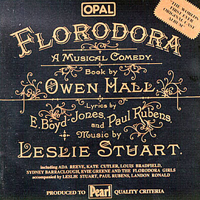 Original London Cast, 1900-15 (various labels/Opal)
Original London Cast, 1900-15 (various labels/Opal)  (2 / 5) The blurb on the CD cover calls this “the world’s first-ever original cast album!” Well, the cast of the 1899 success did enter the Gramophone Company recording studios in 1900 and did commit several songs to wax, including the famous sextet “Tell Me, Pretty Maiden.” But the tracks found on this compilation album range in sound quality from barely audible to unlistenable; indeed, several sound like messages from extraterrestrials. Nearly all are performed to tinny piano accompaniment. Few of the lyrics by Paul Rubens and Frank Clement can be deciphered, and those that can aren’t any great shakes. Still, allowing for the otherworldly quality of the audio, one can tell that Leslie Stuart’s melodies have a nice lilt, and this is a valuable document of the performance styles and stars of the day — stars such as Ada Reeve and Kate Cutler. There’s a goofy track of Louis Bradfield dueting with himself in “Tell Me, Pretty Maiden,” affecting a falsetto for the women’s parts. The album is filled out with solo piano recordings of music from the show, and a track from a 1915 revival that sounds more modern. As an archaeological dig, the CD is a noble attempt and occasionally pleasant listening. — Marc Miller
(2 / 5) The blurb on the CD cover calls this “the world’s first-ever original cast album!” Well, the cast of the 1899 success did enter the Gramophone Company recording studios in 1900 and did commit several songs to wax, including the famous sextet “Tell Me, Pretty Maiden.” But the tracks found on this compilation album range in sound quality from barely audible to unlistenable; indeed, several sound like messages from extraterrestrials. Nearly all are performed to tinny piano accompaniment. Few of the lyrics by Paul Rubens and Frank Clement can be deciphered, and those that can aren’t any great shakes. Still, allowing for the otherworldly quality of the audio, one can tell that Leslie Stuart’s melodies have a nice lilt, and this is a valuable document of the performance styles and stars of the day — stars such as Ada Reeve and Kate Cutler. There’s a goofy track of Louis Bradfield dueting with himself in “Tell Me, Pretty Maiden,” affecting a falsetto for the women’s parts. The album is filled out with solo piano recordings of music from the show, and a track from a 1915 revival that sounds more modern. As an archaeological dig, the CD is a noble attempt and occasionally pleasant listening. — Marc Miller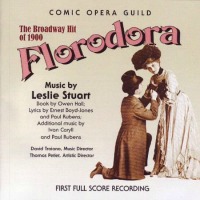 Concert Cast, 2013 (Comic Opera Guild; available through comicoperaguild.org)
Concert Cast, 2013 (Comic Opera Guild; available through comicoperaguild.org)  (3 / 5) The indefatigable Comic Opera Guild had a go at Florodora in 2013, and its recording has one enormous advantage over the “original cast” cylinder tracks: You can hear it. The score is presented more or less complete, and it must be said that Leslie Stuart wrote some good imitation Victor Herbert. The choral work is downright ragged at times, and among the principals, only Natalie Emptage achieves anything like a characterization. But if you want to hear what an utterly typical comic-operetta score sounded like back in the day, or what passed for lyrical wit in 1900, you could do a lot worse. (A double-CD set of this performance, including all the dialogue, is also available, but I’ll pass.) — M.M.
(3 / 5) The indefatigable Comic Opera Guild had a go at Florodora in 2013, and its recording has one enormous advantage over the “original cast” cylinder tracks: You can hear it. The score is presented more or less complete, and it must be said that Leslie Stuart wrote some good imitation Victor Herbert. The choral work is downright ragged at times, and among the principals, only Natalie Emptage achieves anything like a characterization. But if you want to hear what an utterly typical comic-operetta score sounded like back in the day, or what passed for lyrical wit in 1900, you could do a lot worse. (A double-CD set of this performance, including all the dialogue, is also available, but I’ll pass.) — M.M.

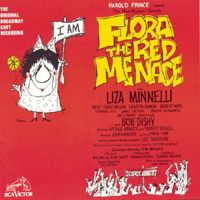
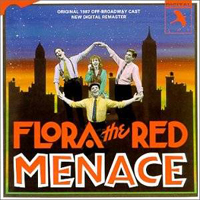
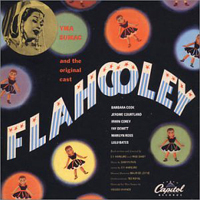
 (4 / 5) With a title such as this, could you possibly expect something ordinary? Flahooley was the brainchild of E. Y. Harburg, who wanted to satirize big business, mass production, and workers’ rights. Harburg co-wrote and co-directed with Fred Saidy; Sammy Fain provided the music. Because the show dealt with toy dolls (called Flahooleys), Fain opted for fittingly childlike music. He also provided a spirited march in “The Spirit of Capsulanti,” and a nifty square dance in “Jump, Little Chillin’.” Harburg was still at the top of his wordplay game, rhyming “Nicholas” with “ridic-u-lous” and “psychiatry” with “buy a tree.” This was the first time that Broadway ever encountered Barbara Cook (she was 23), and the first and last time that it heard Peruvian singing sensation Yma Sumac, with her eight-octave range. If Sumac’s three songs seem not to be show tunes, that’s because they weren’t written by Fain but by Sumac’s husband and muse, Moises Vivanco — and they are terrific. — Peter Filichia
(4 / 5) With a title such as this, could you possibly expect something ordinary? Flahooley was the brainchild of E. Y. Harburg, who wanted to satirize big business, mass production, and workers’ rights. Harburg co-wrote and co-directed with Fred Saidy; Sammy Fain provided the music. Because the show dealt with toy dolls (called Flahooleys), Fain opted for fittingly childlike music. He also provided a spirited march in “The Spirit of Capsulanti,” and a nifty square dance in “Jump, Little Chillin’.” Harburg was still at the top of his wordplay game, rhyming “Nicholas” with “ridic-u-lous” and “psychiatry” with “buy a tree.” This was the first time that Broadway ever encountered Barbara Cook (she was 23), and the first and last time that it heard Peruvian singing sensation Yma Sumac, with her eight-octave range. If Sumac’s three songs seem not to be show tunes, that’s because they weren’t written by Fain but by Sumac’s husband and muse, Moises Vivanco — and they are terrific. — Peter Filichia

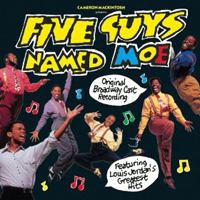
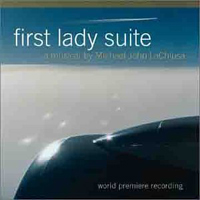
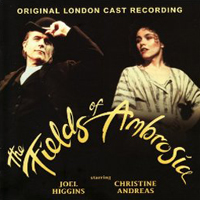
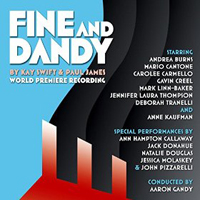
 (1 / 5) PS Classics’ recording of this 1930 musical presents a fairly conventional score by Kay Swift and Paul James (a nom de plume for Swift’s husband, James Warburg). The show was a vehicle for comedian Joe Cook. It features a catchy title tune that became a standard, as well as a big ballad (“Can This Be Love?”) and a new-dance-craze number (“The Jig-Hop”). In these and other numbers, Swift’s hot-jazz rhythms and bluesy chords are pretty good imitations of the work of her sometime boyfriend George Gershwin. James’ lyrics, while illogical and a little casually rhymed, have an infectious, early-Depression optimism. If the material is decidedly second-tier, the execution of this recording is first-rate. Working from the one surviving fragment of Hans Spialek’s orchestrations, Russell Warner and Larry Moore wrote sensational period charts that are played here by an excellent 28-piece orchestra, energetically conducted by Aaron Gandy. If you can get past Mario Cantone’s screeching of the title song and Anne Kaufman’s amateur-night line readings, many of the performances are enjoyable: Gavin Creel ingratiates instantly in “Starting at the Bottom,” Jennifer Laura Thompson is an appealing ingenue, and Andrea Burns exudes musical-comedy snap in “The Jig-Hop” and “I Hit a New High.” Best of all is Carolee Carmello; if this were a live stage show, her “Nobody Breaks My Heart” would surely stop it. The score is shortish, but the disc generously includes an appendix of guest stars warbling other Kay Swift tunes. The Jessica Molaskey-John Pizzarelli duet “Can’t We Be Friends?” is so contemporary cool, you’d never guess that the song dates from 1929. — Marc Miller
(1 / 5) PS Classics’ recording of this 1930 musical presents a fairly conventional score by Kay Swift and Paul James (a nom de plume for Swift’s husband, James Warburg). The show was a vehicle for comedian Joe Cook. It features a catchy title tune that became a standard, as well as a big ballad (“Can This Be Love?”) and a new-dance-craze number (“The Jig-Hop”). In these and other numbers, Swift’s hot-jazz rhythms and bluesy chords are pretty good imitations of the work of her sometime boyfriend George Gershwin. James’ lyrics, while illogical and a little casually rhymed, have an infectious, early-Depression optimism. If the material is decidedly second-tier, the execution of this recording is first-rate. Working from the one surviving fragment of Hans Spialek’s orchestrations, Russell Warner and Larry Moore wrote sensational period charts that are played here by an excellent 28-piece orchestra, energetically conducted by Aaron Gandy. If you can get past Mario Cantone’s screeching of the title song and Anne Kaufman’s amateur-night line readings, many of the performances are enjoyable: Gavin Creel ingratiates instantly in “Starting at the Bottom,” Jennifer Laura Thompson is an appealing ingenue, and Andrea Burns exudes musical-comedy snap in “The Jig-Hop” and “I Hit a New High.” Best of all is Carolee Carmello; if this were a live stage show, her “Nobody Breaks My Heart” would surely stop it. The score is shortish, but the disc generously includes an appendix of guest stars warbling other Kay Swift tunes. The Jessica Molaskey-John Pizzarelli duet “Can’t We Be Friends?” is so contemporary cool, you’d never guess that the song dates from 1929. — Marc Miller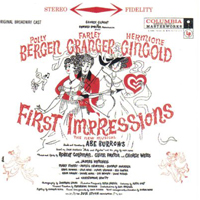
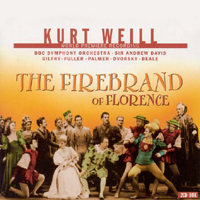
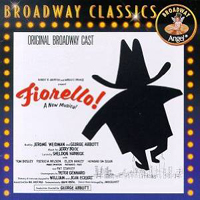
 (5 / 5) In an earlier era of musical theater, it was not uncommon for an overture to start with a sound effect. Here, we have the sound of a fire-engine siren, appropriate for a musical about the New York City mayor who famously showed up at fires riding with the firemen. Fiorello! tied with The Sound of Music for the Tony Award for Best Musical, and won the Drama Critics’ Circle Award and the Pulitzer Prize for Drama. Guided by veteran George Abbott, who directed and co-wrote the book, the show featured the second Broadway score by composer Jerry Bock and lyricist Sheldon Harnick. (Their first, The Body Beautiful, wasn’t recorded.) The Fiorello! score displays an excellent feel for both period and character. While none of the songs ever achieved popularity outside of the show, many are Broadway classics. The numbers are evenly distributed among the principals, and the story is fairly easy to discern by listening to this album. In the title role, Tom Bosley isn’t required to sing much; there’s his campaign song, “The Name’s LaGuardia” (which he sings in three languages!), and he leads the energetic female ensemble in “Unfair!” Bosley also makes an impact with some brief but moving dialogue during the finale. As his long-suffering secretary Marie, Patricia Wilson is outstanding, especially in the bracing “The Very Next Man.” In the role of a political boss, Howard Da Silva leads the strong-voiced men’s ensemble (listen for the distinctive baritone of Ron Husmann) in the showstopper “Little Tin Box.” Da Silva and the men also shine in the plot-driven “Politics and Poker” and “The Bum Won,” a contrapuntal, post-election lament. As Fiorello’s first wife, Thea, Ellen Hanley uses her creamy soprano for nostalgia in “Til Tomorrow” and for mature romanticism in “When Did I Fall in Love?” “I Love a Cop” is charmingly sung by Pat Stanley, and “Gentleman Jimmy” is belted out by Eileen Rodgers. — Jeffrey Dunn
(5 / 5) In an earlier era of musical theater, it was not uncommon for an overture to start with a sound effect. Here, we have the sound of a fire-engine siren, appropriate for a musical about the New York City mayor who famously showed up at fires riding with the firemen. Fiorello! tied with The Sound of Music for the Tony Award for Best Musical, and won the Drama Critics’ Circle Award and the Pulitzer Prize for Drama. Guided by veteran George Abbott, who directed and co-wrote the book, the show featured the second Broadway score by composer Jerry Bock and lyricist Sheldon Harnick. (Their first, The Body Beautiful, wasn’t recorded.) The Fiorello! score displays an excellent feel for both period and character. While none of the songs ever achieved popularity outside of the show, many are Broadway classics. The numbers are evenly distributed among the principals, and the story is fairly easy to discern by listening to this album. In the title role, Tom Bosley isn’t required to sing much; there’s his campaign song, “The Name’s LaGuardia” (which he sings in three languages!), and he leads the energetic female ensemble in “Unfair!” Bosley also makes an impact with some brief but moving dialogue during the finale. As his long-suffering secretary Marie, Patricia Wilson is outstanding, especially in the bracing “The Very Next Man.” In the role of a political boss, Howard Da Silva leads the strong-voiced men’s ensemble (listen for the distinctive baritone of Ron Husmann) in the showstopper “Little Tin Box.” Da Silva and the men also shine in the plot-driven “Politics and Poker” and “The Bum Won,” a contrapuntal, post-election lament. As Fiorello’s first wife, Thea, Ellen Hanley uses her creamy soprano for nostalgia in “Til Tomorrow” and for mature romanticism in “When Did I Fall in Love?” “I Love a Cop” is charmingly sung by Pat Stanley, and “Gentleman Jimmy” is belted out by Eileen Rodgers. — Jeffrey Dunn